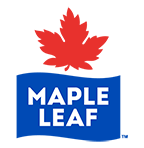Canada’s agrifood sector contributes over 136 MT to the country’s annual emissions tally. By 2050, these emissions are expected to rise above 196 MT—representing 19% of the national total. As the world combats climate change, there has been a growing movement toward achieving Net Zero emissions across all sectors of the economy. But one sector that hasn’t been given what it needs to hit this target is agrifood.
With a global population set to grow by two billion by 2050, agriculture needs to be integral to our national sustainability agenda. Producers must have the right tools to increase their adoption of climate-smart farm practices. And the entire agrifood supply chain recognizes that change needs to happen now.
RBC, Loblaw, Maple Leaf Foods, Nutrien, Boston Consulting Group’s (BCG) Centre for Canada’s Future—with support from Smart Prosperity Institute/Natural Step Canada, and the Arrell Food Institute—have provided the initial support to launch the Canadian Alliance for Net Zero Agrifood (CANZA). At a high level, CANZA is about bringing the right people together across the food value chain and partnering sectors to significantly scale up investment and drive innovation at a national level, while being reflective of regional realities.
CANZA will be a national voice for the industry and will utilize the power of the entire agriculture supply chain to spur change. The aim of this alliance is to cut emissions by 50 MT by 2030 and 150 MT by 2050.
In late 2022, RBC, the BCG Centre for Canada’s Future, and the Arrell Food Institute at the University of Guelph identified six potential cross-cutting initiatives that could shape a Net Zero roadmap in agriculture. To make change as fast and effectively as possible, two workstreams have been established: the Carbon Farming Initiative and the National Biodigester Network Initiative. These will address the largest emission sources in the agrifood supply chain with the goal of reducing emissions by 50 MT by 2030.
The Carbon Farming Initiative aims to develop a low cost, scalable, and nationally relevant measurement reporting, verification system (MRV) and create a carbon credit platform to help producers develop and monetize high quality carbon assets. The workstream will also help develop climate-smart products and a certification strategy to increase consumer awareness and demand. A first demonstration project in Saskatchewan will lay the foundation for additional pilots across the country that will cater to all farms.
The National Biodigester Network Initiative seeks to develop a roadmap and model for scaling a ‘waste to value’ digester network in high emission areas across Canada. By creating policy and market incentives for agricultural digester development, the workstream will provide stable feedstocks and new economic opportunities.
Upon the successful launch of these two workstreams, more initiatives will be introduced to help Canada reach its goal of cutting emissions in the agriculture sector by 150 MT by 2050.
Ultimately, CANZA’s goal is to find mechanisms that financially reward farming operations for their conservation practices. The alliance seeks to build low carbon initiatives for farmers across the country and to scale the sector’s sustainability practices at an accelerated pace. Through this broad coalition, the agrifood supply chain will be able to take substantial steps toward reducing its emissions footprint.
For more information, please contact mohamad.yaghi@rbc.
Canadian Alliance for Net Zero Agrifood partners
This article is intended as general information only and is not to be relied upon as constituting legal, financial or other professional advice. A professional advisor should be consulted regarding your specific situation. Information presented is believed to be factual and up-to-date but we do not guarantee its accuracy and it should not be regarded as a complete analysis of the subjects discussed. All expressions of opinion reflect the judgment of the authors as of the date of publication and are subject to change. No endorsement of any third parties or their advice, opinions, information, products or services is expressly given or implied by Royal Bank of Canada or any of its affiliates.










 Learn More
Learn More